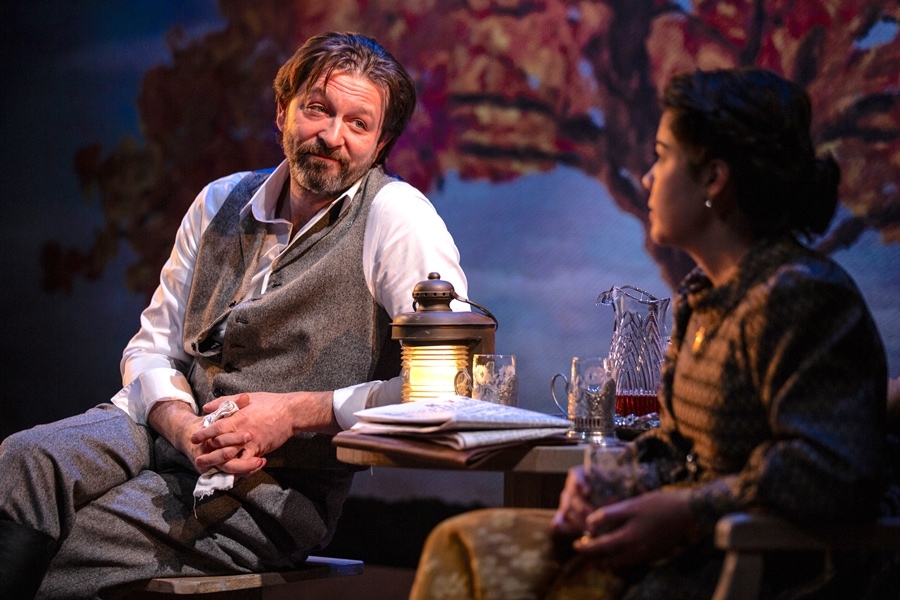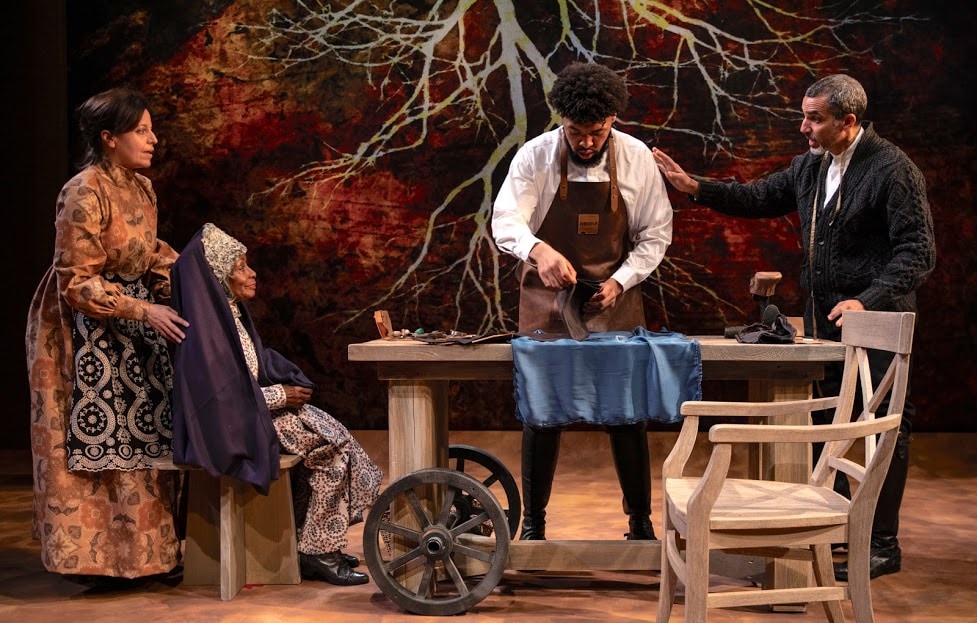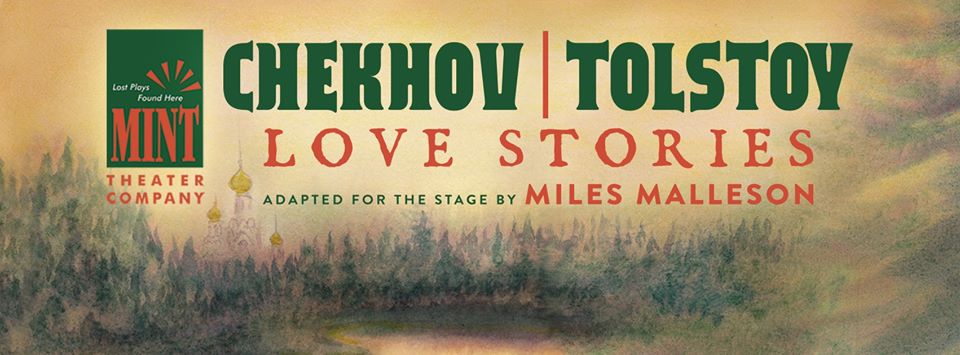For the first time on stage, Mint Theater Company brings together two short stories by two of Russia’s foremost authors in Chekhov/Tolstoy: Love Stories, playing a limited engagement at Theatre Row. Presented without intermission, “The Artist” and “Michael” – adapted by playwright Miles Malleson (1888-1969) from Anton Chekhov’s “An Artist’s Story” (alternately titled “The House with the Mezzanine”) of 1896, and Leo Tolstoy’s “What Men Live By” of 1885 – consider ideological themes of socio-economic inequality and the power of love in a premiere production co-directed by the Mint’s Artistic Director Jonathan Bank and long-time collaborator Jane Shaw, making her directorial debut (Shaw also provides the original music and sound, as she has for 30 of the company’s past productions).

The pairing opens with Chekhov’s story of Nicov (played by Alexander Sokovikov), a landscape artist who, while painting out in the countryside, encounters two wealthy daughters with very different opinions on how best to live life and to serve the poor. Lidia (Brittany Annika Liu) is actively involved in social causes, whereas the younger Genya (Anna Lentz) enjoys reading and is smitten by the lonely, bitter, and pessimistic Nicov’s artistic vision. They, along with their Mother (Katie Firth) and family friend Bylekurov (J. Paul Nicholas), meet in the garden, “cross-examine” each other, and expound their opposing views, to the point of engendering significant personal consequences (here with an abrupt ending that curtails Chekhov’s original; the casting of Sokovikov also alters the aspect of the “young” artist and sets a different tone for his relationship with the much younger sisters).
“The Artist” is directly followed by Tolstoy’s “Michael,” in which an enigmatic stranger (Malik Reed), found naked and freezing by the side of the road, changes the outlook of a struggling peasant couple that takes him in. While Matryona (portrayed by Firth) is initially angry and opposed to his presence, her husband Simon (Nicholas), who found the man, welcomes him into their modest home and employs him in his craft of shoemaking. After living in silence (in the present production), and realizing some important truths from patrons (Sokovikov as a Russian noble, who interjects passages in his native language into the conversation; Lentz as his pompous servant; and Liu as a loving adoptive mother of orphaned twins), the titular figure ultimately speaks to impart the wisdom he gained in his time with them, on how to lead a redeemed and enlightened life.

The back-to-back pieces make for a well-considered combination in their co-presentation. Both capture the vintage look of the late 19th-century originals, written and set in Czarist Russia, with authentic costumes (by Oana Botez) and a set (by Roger Hanna) that easily transitions from one story to the next with just a few fluid changes of furniture and props (Natalie Carney). They are further integrated, visually and conceptually, by a clever shift in the backdrop painting of a tree, from the beauty of its full blossoming on the earth to the mysteries of what lies beneath and forms the roots of our visible lives. And both have surprise endings – one devastating and one uplifting – though Chekhov’s is told in his signature sardonic realist style, while Tolstoy’s makes use of religious metaphor amidst the harsh realities of Russian peasant life.
But both shorts are also slow-paced and stilted, with long-winded speeches by the eponymous characters that express the philosophical and political leanings of the authors, and feel more pedagogical than dramatic. The supporting figures generally remain motionless and quiet through the leads’ extended monologues, just watching and listening, serving as mere framing devices for the central discourses. Much of the dialogue, even during the most contentious polemics or the loftiest expressions of love, is controlled and understated in its delivery, resulting in a restrained and hesitant production that lacks passion, commitment, or chemistry (a directorial decision perhaps intended to be in keeping with the aristocratic reserve of the era). The single most engaging performance comes from the inimitable Vinie Burrows as the subsidiary figure of Aniuska in Malleson’s adapted “Michael,” who brings welcome touches of humor and recognition to the show.
While the Mint is to be appreciated for its commitment to presenting little-known works by classic writers to a current audience, Chekhov/Tolstoy: Love Stories is not as compelling or satisfying on stage as the original short stories are on the page.
Running Time: Approximately 80 minutes, without intermission.
Chekhov/Tolstoy: Love Stories plays through Saturday, March 14, 2020, at Mint Theater Company, performing at Theatre Row – 410 West 42nd Street, NYC. For tickets, call (212) 239-6200, or purchase them online.





